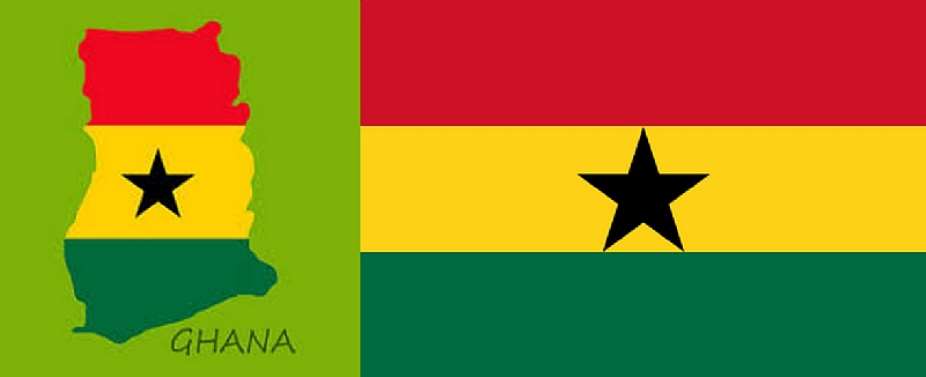Ghana belongs to the group of (lower) middle-income countries (LMIC). After a strong upswing since the early 2000, the country was in a period of weak growth until 2016, caused by low world commodity prices, but also by economic policies.
Ghana's economic growth fell to 3.5% in 2016, a record low over the last 26 years. The economy grew by more than 8% in 2017, and the Ghanaian government expects similar growth in 2018, driven by new oil and gas exploration that has gone into production. The medium-term prospects are positive despite existing risks (public debt).
The economic program of the government, in office since January 2017, contains a large number of planned measures to strengthen agriculture and industry, including tax cuts, incentives for the private sector and infrastructure development.
The completion of existing gas and coal-fired power plants will create additional capacity in the largely state-owned energy sector. At the same time, it is planned to further expand the use of renewable energy sources. In the medium term, however, the government sees coal-fired power plants ("clean coal") as the second backbone of the power supply alongside the existing hydro power plants.
Since the energy crisis in 2015, the Ghanaian energy sector has been structurally over-indebted. Reasons are too high production costs on the basis of disadvantageous energy purchase agreements (PPA) and technical and non-technical losses. A first attempt by the government to reduce the over-indebtedness of an investor model was far below expectations.
In April 2015, a reform program was agreed between the Ghanaian government and the IMF, providing US $ 918 million in IMF funding over three years. In return, Ghana is committed to a transparent budget policy and a reduction of its budget deficit. After the end of the mandate of the previous government, a significant overshoot of spending limits and thus the national debt was to be noted, the current government pursues a very restrictive austerity. Expenditure is adjusted in relation to the development of revenues, the planned budget deficit of around 6% (end of 2016: more than 10%) is realistic (despite revenue shortfalls of up to 10% of the planned budget).
Economic relations with Germany and the European Union
Ghana was one of Germany's most important trading partners in sub-Saharan Africa in 2017. The bilateral trade volume with Germany amounted to 481 million Euros (2016: 583 million Euros). German exports to Ghana amounted to 266 million Euros (2016: 302 million Euros), imports from Ghana 215 million Euros (2016: 281 million Euros). The most important imports from Germany are vehicles, machinery and chemical products. Germany is the market leader in vehicle import. Cocoa is the most important Ghanaian export product for Germany.
The German-Ghanaian Economic Association "German-Ghanaian Economic Association" currently has about 80 members and strives to promote economic relations between Ghana and Germany. A delegate office of the German economy in Accra was opened in January 2011, since January 2014 also the Germany Trade and Invest (GTAI) is represented with an office in Ghana.
The Ghanaian-German investment protection agreement has been in force since 23.11.1998, the agreement on the avoidance of double taxation since 01.01.2008.
Ghana's economic relations with the EU are tight. The EU is one of the main Western partners in development cooperation and the main trading partner for Ghana. For the Interim-Economic Partnership Agreement, see "Foreign Policy".
Inflation and monetary policy
The inflation rate stood at 10.5% in April 2018 (compared to 17% in 2017). The central bank aims for an inflation rate of 8% +/- 2%.
The key interest rate, which was lowered several times by the Bank of Ghana last year, is currently 18%.
The exchange rate of the Ghana-Cedi has noticeably stabilized since the spring of 2017.
Main economic sectors
In the Gulf of Guinea, substantial oil reserves were discovered off Ghana's coast. Ghana began commercial exploitation of the Gulf of Guinea's oil resources in December 2010, with production now rising to over 250,000 barrels a day. A project to exploit the gas produced from crude oil production has been in operation since the beginning of 2015 and reduces dependence on the unreliable gas supply from Nigeria.
Meanwhile, oil after gold is Ghana's second most important export commodity. In third place is cocoa. Ghana is the second largest cocoa producer in the world and exports especially to the Netherlands, Great Britain, Germany.
Francis Tawiah (Duisburg - Germany)





 Lay KPMG audit report on SML-GRA contract before Parliament – Isaac Adongo tells...
Lay KPMG audit report on SML-GRA contract before Parliament – Isaac Adongo tells...
 Supervisor remanded for stabbing businessman with broken bottle and screwdriver
Supervisor remanded for stabbing businessman with broken bottle and screwdriver
 NDC watching EC and NPP closely on Returning Officer recruitment — Omane Boamah
NDC watching EC and NPP closely on Returning Officer recruitment — Omane Boamah
 Your decision to contest for president again is pathetic – Annoh-Dompreh blasts ...
Your decision to contest for president again is pathetic – Annoh-Dompreh blasts ...
 Election 2024: Security agencies ready to keep peace and secure the country — IG...
Election 2024: Security agencies ready to keep peace and secure the country — IG...
 People no longer place value in public basic schools; new uniforms, painting wil...
People no longer place value in public basic schools; new uniforms, painting wil...
 'Comedian' Paul Adom Otchere needs help – Sulemana Braimah
'Comedian' Paul Adom Otchere needs help – Sulemana Braimah
 Ejisu by-election: Only 33% of voters can be swayed by inducement — Global InfoA...
Ejisu by-election: Only 33% of voters can be swayed by inducement — Global InfoA...
 Minority will expose the beneficial owners of SML, recover funds paid to company...
Minority will expose the beneficial owners of SML, recover funds paid to company...
 Prof. Opoku-Agyemang has ‘decapitated’ the NPP’s strategies; don’t take them ser...
Prof. Opoku-Agyemang has ‘decapitated’ the NPP’s strategies; don’t take them ser...
